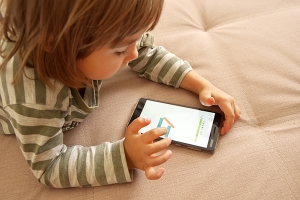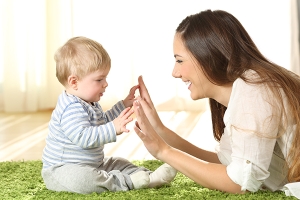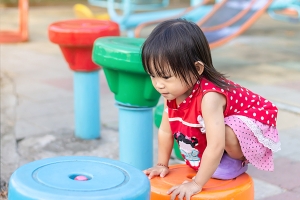
This is part one of a two-part series. Read part two in our November issue to learn how teaching kids to care for themselves and family naturally extends to caring for community.
It's no secret that learning essential life skills benefits kids. According to the American Academy of Child and Adolescent Psychology, children who are responsible for age-appropriate tasks exhibit higher self-esteem and are better equipped to deal with frustration, adversity and delayed gratification.
But there's another bonus for parents and caregivers who teach and intentionally include children in the necessary tasks of daily life. Whether it's making a bed, preparing a meal or feeding a pet, contributing to family life creates a sense of belonging that strengthens family bonds and teaches kids a critical key to success: how to care for themselves and others. Discover the unexpected impact of teaching kids to care through essential life skills.
Create a caring culture.
Thinking of life skills as ways to care for one another helps children understand why tasks are important, the benefits of doing them, and how their contributions matter.
Richard Rende, a developmental psychologist and author of Raising Can-Do Kids, encourages parents to think of daily family tasks as an opportunity to create a caring culture at home. “Talking about chores as caretaking activities—ways in which every family member helps take care of each other, as opposed to drudgery—sets a family climate that encourages kids to follow their instincts to help.”
Give kids real-life practice.
Having real-life opportunities to practice life skills sends a powerful message. It tells kids that parents believe they are capable and offers them a chance to feel a sense of competence and accomplishment.
“We want our daughters to be capable team members in our family,” says Cardiff mom, Carrie Barrett. “Even at young ages, they are proving that they are more than capable and willing.”
Barrett created a chart of new skills for her three girls (ages 4, 5 and 7) to learn before school started. “We wanted to use the summer as an opportunity to teach them basic, important, necessary life skills with the downtime we had,” she says. “Tasks included learning to scramble an egg, memorizing both parent's phone numbers and our home address, folding and putting away their laundry, properly ordering at a restaurant and learning how to talk on the phone.”
Teaching life skills doesn't have to be complicated. Identify skills you would like your children to learn, set some goals, then provide lots of opportunities to practice (with your guidance) until you both feel confident with the results.
Focus on benefits.
When teaching a new skill, focus not only on how to accomplish the task, but also the benefits that come with its completion. Try to connect the task or skill with the caring outcome. For example, putting away toys means they won't be lost or broken—a benefit to your child when she wants to play with them again. Washing and folding laundry means everyone has fresh, clean clothes to wear.
Work on new tasks with children until they can do them independently. Talk about how much you enjoy spending time together while taking care of daily responsibilities.
Celebrate when your child masters a new skill and remember to reinforce the benefit. For example, you might say, “When you greet our guests at the front door, they feel welcome and happy to be here.”
Work on categories of caring.
A quick search online delivers a mind-boggling list of what life skills kids should know by a certain age, but this approach doesn't consider the different needs, personalities and abilities of various kids and families.
Breaking down essential life skills into categories of caring might help. Below are examples of life skills for kids sorted by caring for belongings, caring for self, caring for family and interacting with others. Choose one or two skills in each category to tackle when you think your child is ready. Once she masters a skill, move on to another in that category.
Caring for belongings:
- Put things away when finished with them—toys for younger children, books, bags, sports equipment, etc. for older children
- Make beds and keep rooms tidy (not perfect, but cared for)
- Sort, fold and put away laundry
Caring for self:
- Bathe, brush teeth, get dressed
- Pack lunch for school
- Able to stay home alone for short periods of time
- Memorize home address and parent's phone numbers
Caring for family:
- Help with meal planning and preparation
- Set and clear table before and after meals
- Wipe tables and counters
- Load and unload dishwasher
- Help with grocery shopping and putting away groceries
- Take out trash
- Take care of pets
Interacting with others (the first steps in learning to care for others):
- Greet guests
- Order food at a restaurant
- Talk on the phone
- Resolve disagreements with siblings and friends
- Learn personal safety and how to ask for help
By approaching essential life skills as ways of caring, kids learn that their contributions matter. They grow secure in their role within the family and confident in their ability to make a difference. Parents who teach these important skills as part of daily life help kids discover the joy and satisfaction that come from caring for themselves and others.
Jody Lee Cates is a local San Diego mom and the award-winning writer of our column “Parenting with Purpose.”
 This article won an “Excellence in Journalism” award from San Diego Press Club! See details and all the San Diego Family awards HERE.
This article won an “Excellence in Journalism” award from San Diego Press Club! See details and all the San Diego Family awards HERE.
Read part two of “Teaching Kids to Care” in our November issue to learn how teaching kids to care for themselves and family naturally extends to caring for community.















